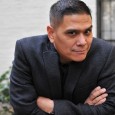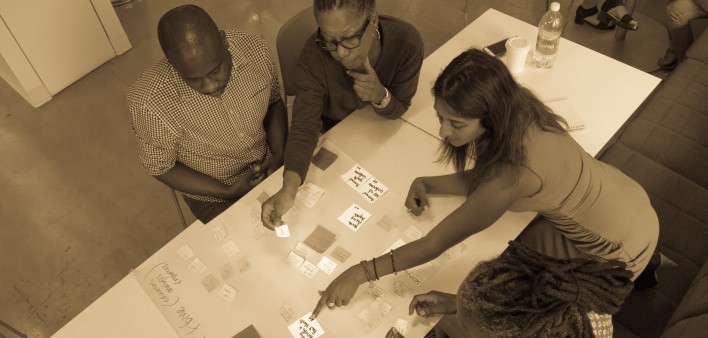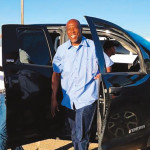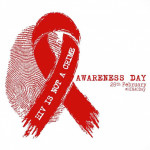We talk about community a lot in the HIV field. Which community do you represent? In which community do you feel at home? Which community is being targeted? Which community isn’t here? How do we adapt this message for another community? We use the term community as it means the same thing in each situation. So thought I’d talk a little about what being “in community” means to us in the United States People living with HIV Caucus (the HIV Caucus).
I’m lucky. There are people out there in the world that I am in conversation with. We are thinking on similar issues, and struggle to bring forth visions of the world big enough for us and our constituents to thrive in. I feel engaged with them even if I barely know them or have only spoken with them directly a handful of times. They inspire me to keep on working towards that better world.
When I talk about community, I’m talking about these folks.
With the HIV Caucus, I collaborate with a wide range of people with diverse histories and paths bringing us together. I have gotten tired, overworked from this largely volunteer position, and burnt out from demands on my time, energy and focus. There are moments when we feel as if we failed each other - even though it’s usually due to a lack of resources or a belief in ourselves. And we have picked each other up. I have prioritized the HIV Caucus over my actual job as a professor aiming for tenure. At least once every few months, I want to scream and quit, and just commit to my own life and career.
But I come back, because of the community.
I have been working in HIV longer than I have had the virus. My (volunteer) work with the HIV Caucus is the most exciting, innovative, and precarious place I’ve been. I was there when foundations and government agencies were eager to fund HIV initiatives; I remember when HIV activism was not professionalized and many of us fought to justify our place at the table. I was lucky to be taken in by a community of gay men of color who mentored and befriended me - including Robert Vazquez-Pacheco, George Ayala, Dennis deLeon, Reggie Williams, George Bellinger,Jr., Chris Bates, Douglas Yaranon, Kiyoshi Kuromiya, Marlon Riggs, Essex Hemphill, Vince Crisostomo, Steve Lew, Juan Rodriguez, Wakefield and Alexander Robinson. They made spaces where I could grow and develop. Now, I see a lot of my peers and mentors who have moved on to work for federal agencies or pharmaceutical companies; or have retired, gone on disability or otherwise left the HIV field. Some have died. I see HIV funding to community-based activities collapsing quickly – both domestically and globally. In the race to “end the epidemic” rhetorically, it seems like many regions are shifting resources to clinical solutions and programs. I understand the mindset behind these directions, but I question the long term impact on my constituents – people living with HIV.
What do we lose without community?
I don’t want to know. This year, I am working on and supporting a few different gatherings for people living with HIV – including AIDSWatch, HIV Is Not A Crime Training Academy, the Positive Women’s Network-USA National Leadership Summit, and the Framework for Dialogue. These spaces are vital as they provide opportunities for us to connect, to talk about what we want out of the world, to support each others’ visions, to acknowledge the trauma and stigma that we endure, and to grow from being in dialogue. I look forward to these, even as I get stressed about fundraising, developing tools for these meetings, and making sure new people living with HIV find out about them. These are as important to my own growth as academic conferences (which matter more for my tenure prospects). It is with other people living with HIV that I learn, that I listen to how HIV (still) matters, and the many brilliant ways that people thrive.
Some of us have a hard time being in community.
Since I joined the HIV Caucus, I’ve been developing a different center when engaging HIV. I have gained more from listening and holding open spaces for people to participate, as best we can or choose. I know not everyone comes to HIV work this way. Some people are doing it for a pay check (and we should get paid for our labor). Others are haunted by trauma, fear and insecurity. Many of us have been overlooked or excluded for so long that it’s hard to be present and trust that people aren’t acting with malicious intent. Some of us refuse to face that we are acting in ways that hurt or silence others. When I’m part of a community, I’m also accountable to it. Some of the most productive conversations I’ve had are with people who critique my actions or question the things I didn’t bring up. Being in community is a dynamic process, it requires us to engage each other and accept what the other brings.
Are we “in community”?
When I talk about community, I’m saying that HIV connects us, somehow. We share an understanding of the world that is different from others. We are marked by the way our blood beats. James Baldwin once said, “You have to go the way your blood beats. If you don’t live the only life you have, you won’t live some other life, you won’t live any life at all.” As a gay man of color living with HIV, I can’t conceive of this life without being in a community.
Happy New Year. I hope to see you at one of our gatherings in 2018!








Comments
Comments